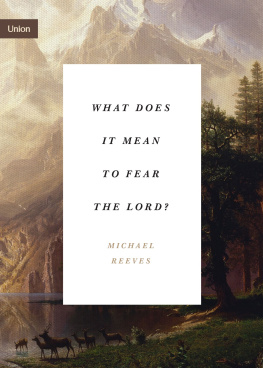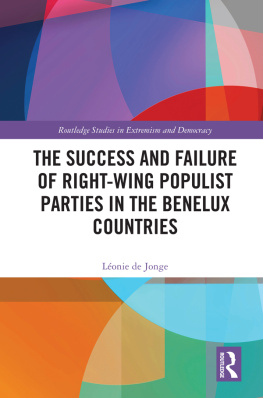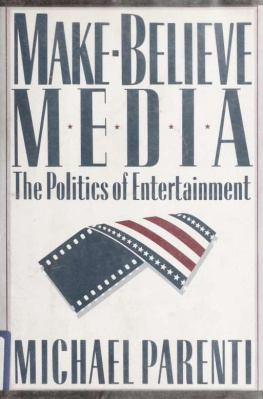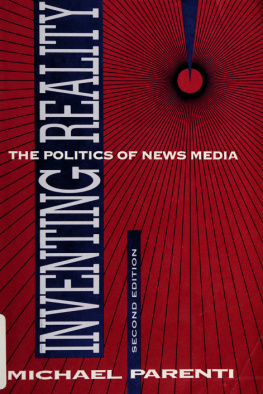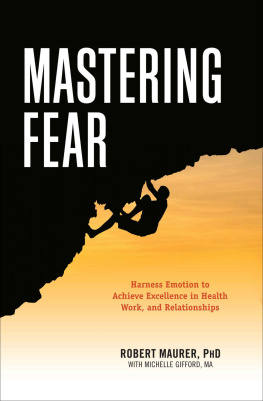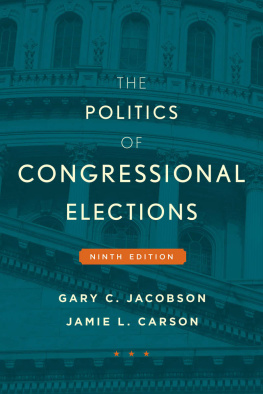First published 2006 by Paradigm Publishers
Published 2016 by Routledge
2 Park Square, Milton Park, Abingdon, Oxon OX14 4RN
711 Third Avenue, New York, NY 10017, USA
Routledge is an imprint of the Taylor & Francis Group, an informa business
Copyright 2006, Taylor & Francis.
All rights reserved. No part of this book may be reprinted or reproduced or utilised in any form or by any electronic, mechanical, or other means, now known or hereafter invented, including photocopying and recording, or in any information storage or retrieval system, without permission in writing from the publishers.
Notice:
Product or corporate names may be trademarks or registered trademarks, and are used only for identification and explanation without intent to infringe.
Library of Congress Cataloging-in-Publication Data
Gonzales, Manuel G.
The politics of fear: how Republicans use money, race, and the media to win /
Manuel G. Gonzales and Richard Delgado.
p. cm.
Includes bibliographical references and index.
ISBN13: 978-1-59451-241-4 (hardcover : alk. paper)
ISBN10: 1-59451-241-8 (hardcover : alk. paper)
1. ConservatismUnited States. 2. United StatesPolitics and government1989
I. Delgado, Richard. II. Title.
JC573.2.U6G656 20906
320.520973dc22
Designed and Typeset by Straight Creek Bookmakers.
ISBN 13: 978-1-59451-241-4 (hbk)
ISBN 13: 978-1-59451-242-1 (pbk)
Dedicated to our mentors,
Roger L. Williams, David J. Weber, and Henry McGee
Gonzales and Delgado document the stunning success of a network of wealthy donors and corporations in creating and sustaining a set of think tanks, legal action groups, and media strategies. These institutions have provided an agenda and very well-supported consistent advocacy for a powerful and effective conservative movement and drastically changed the agenda of American politics.
Although there are many institutions with important resources that are not part of this movement, the moderate and progressive forces in U.S. society have no similarly articulated national strategy. Many of them eschew work on big ideas and fundamental change in favor of short-term funding of community organizations or minor technical experiments, ignoring the basic structure of society or the economy, which usually defeats those efforts.
If we are to have a full democratic debate in the United States, we need to understand what has happened. Those with different values must realize that they are shooting random arrows in many directions while the right wing, which now controls all three branches of the federal government, is coming at them fast in a tank.
Gary Orfield, Harvard University
Political commentator Joe Conason begins his 2003 book Big Lies: The Right-Wing Propaganda Machine and How It Distorts the Truth by giving a long list of ways that liberalism has dramatically improved the lives of American citizens during the twentieth century. These include Medicare, Social Security, and a host of other popular and far-reaching reforms. As impressive as it is, however, this list is far from complete. Brown v. Board of Education, the Peace Corps, and the struggle for womens rights are just a few of the most significant omissions. The contributions of conservatism to social progress, on the other hand, have been modest at best. Indeed, as critics have noted, conservatives have consistently opposed democratic reform at every turn. Obsessed with preserving the privileges of political and economic elites, they have fought tooth and nail to block efforts to promote the rights of workers, consumers, women, minorities, and other disenfranchised segments of the population. Yet, in spite of this poor record, conservative candidates have won election time and again during the past thirty-five years, a period of Republican ascendancy that has culminated with a near-monopoly on political power. Our book is an attempt to explain this paradox.
Using the Republican Party as a vehicle, conservatives have dominated the political life of the United States since the seventies by employing a host of scare tactics to win elections. While the fear of racial minorities (and preservation of white privilege), as we argue, has remained the most effective tool in the GOP arsenal, from time to time other groupsCommunists, gays, immigrants, and terrorists, just to name the most obvioushave served as convenient scapegoats. Thus, the GOP has won popular support despite a political agenda that works against the interests of the great majority of the citizenry, including the bulk of the middle class. Beset by fear, Americans have been willing to support a party that promises them security even at the expense of their liberties and economic well-being.
The politics of fear have figured prominently in the writings of other students of the Republican ascendancyDan T. Carter, Alan Crawford, Thomas Edsall, Michael Lind, Godfrey Hodgson. In our study, however, racial politics takes center stage. Moreover, while most of the journalists and scholars mentioned emphasize the role of blacks, Spanish-speaking minorities generally receive short shrift. This work will help to correct that deficiency. Although conservatives have begun to court the Latino voter, fear of brown people, and the political manipulation of this fear, will undoubtedly continue into the future given the heavy immigration from Latin America and the transformation of Latinos from a regional into a national minority.
During the past twenty years, a great deal has been written on the rise of conservatism, so much so that it is almost impossible to keep abreast of the latest findings. Works of synthesis are sorely needed. Our study, which addresses this void, systematically reviews this voluminous literature and tries to make sense of it.
A prevalent theme in these new studies, written mostly by progressive scholars, is that the conservative resurgence was primarily a reaction to the excesses of the sixties. According to this popular interpretation, the advances of the rights revolution came at the expense of the white middle class, notably the hardworking lower-middle class. While this view contains an element of truth, it is important to give the achievements of the sixties their due. Reading most accounts today, one would think that the turbulent decade was dominated by drug-taking hippies, opportunistic minorities, their misguided liberal allies, and a variety of other losers. But people didnt march and die in the streets because they were bored. We forget today what conditions were like at midcentury for the underprivileged. Racial oppression was rampant; the plight of blacks, in particular, dire. We have short memories. Look again at the photograph of the nine beleaguered black children attempting to enroll at Little Rocks Central High School in 1957. They are surrounded by a segregationist mob. See the hatred in those white faces. Without federal protection, the children most likely would have been injured or even killed. Thats what the sixties were about. Yes, wage-earning whites would ultimately pay a price. But, their anger has surely been misplacedto the immense political and material advantage of the rich and the superrich.
Nor have minorities gained as many advantages as their detractors would have us believe. According to the 2000 U.S. census, Huron, California, the hometown of one of us, has 6,306 residents. Mostly immigrants (53.7 percent), 98.3 percent of the residents of this San Joaquin Valley community are Latino, predominantly Mexican. The median household income is $24,609. No onenot a single personliving there in 2000 had a college degree. As the late Marc Reisner pointed out in


